A month or so ago, I shared with you our brand new system for winter water catchment. It involved burying 50 gallon food grade barrels underground, with a hand pump to get the water above ground. In this post, I’ll share how that system worked (and didn’t work), and how we are managing to catch water (in winter!) on our off-grid homestead.
This system worked really well for us, until it got very cold. Then we realized quickly that our system, while great as a season-extender, was not going to get us through a Missouri winter. The barrels were most likely not buried deep enough, and the pipe that extended above the ground was not sufficiently insulated.
As we build systems for our homestead, we go through a process of research, plan, execute, and wait and see what happens. Sometimes, our projects turn out really well. Our above-ground water catchment system will work amazingly well for 9 or even 10 months out of the year. Long term, we will install a large underground cistern with either a solar-powered pump or a hand-pump. This experiment has not been exactly what we hoped for, but it was worth trying.
So how exactly are we securing water for drinking, washing, and eating, you ask? Fortunately, we have been able to capture snow-melt from our metal roof, and use our Berkey filter to purify the snow-melt for drinking water and for cooking.
As for everything else – dish washing, bathing, and watering our chickens – it’s back to the pond we go!
Our daily chores now involve at least one trip to the pond to collect buckets of water. Usually, that involves breaking through at least 2 or 3 inches of ice!
As we add in amenities to our lives – for instance, when we finally moved from the tent into the house after several cold nights – it feels like such luxury! I have never before been so enamored with automatic hand-washing stations in public restrooms, or so grateful to take a hot shower at a friend’s house. Our simplicity has afforded us a new understanding of gratitude for the many comforts we can take for granted.
Are you intrigued by the simplicity of living off-grid, but don’t know where to start? My new eBook, Creating Your Off-Grid Homestead, is full of practical advice and radical inspiration and encouragement to give you the information you need to start your own off-grid homestead, with a DIY, debt-free approach!

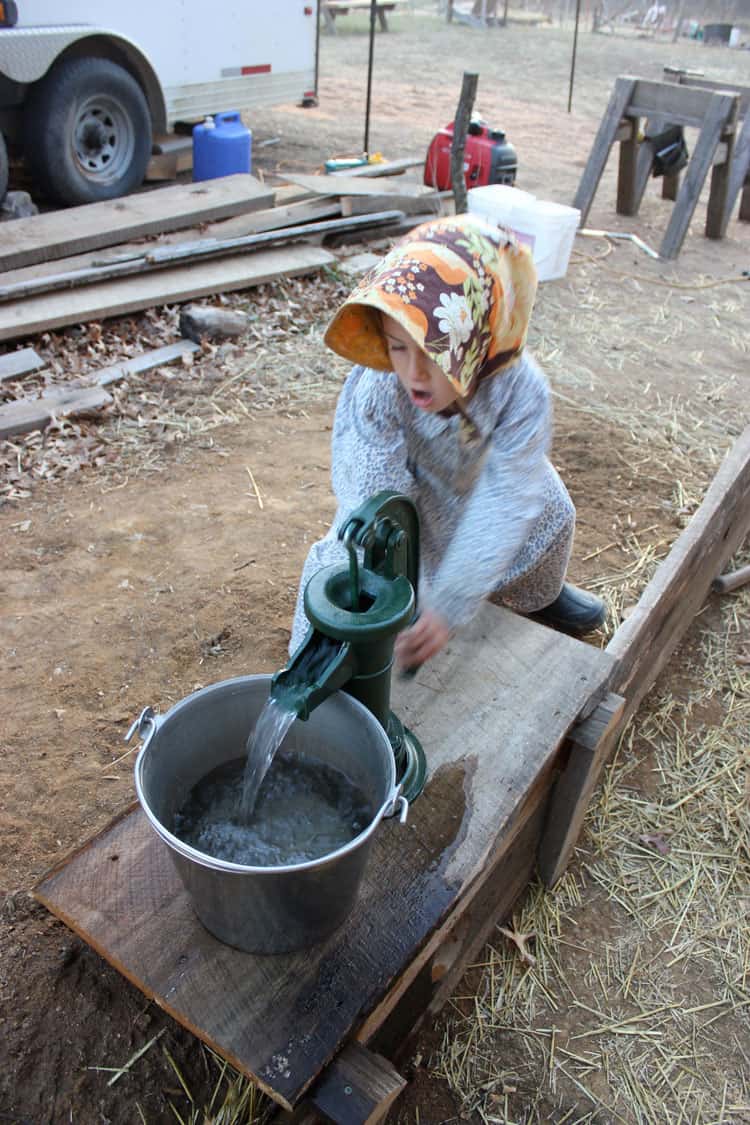

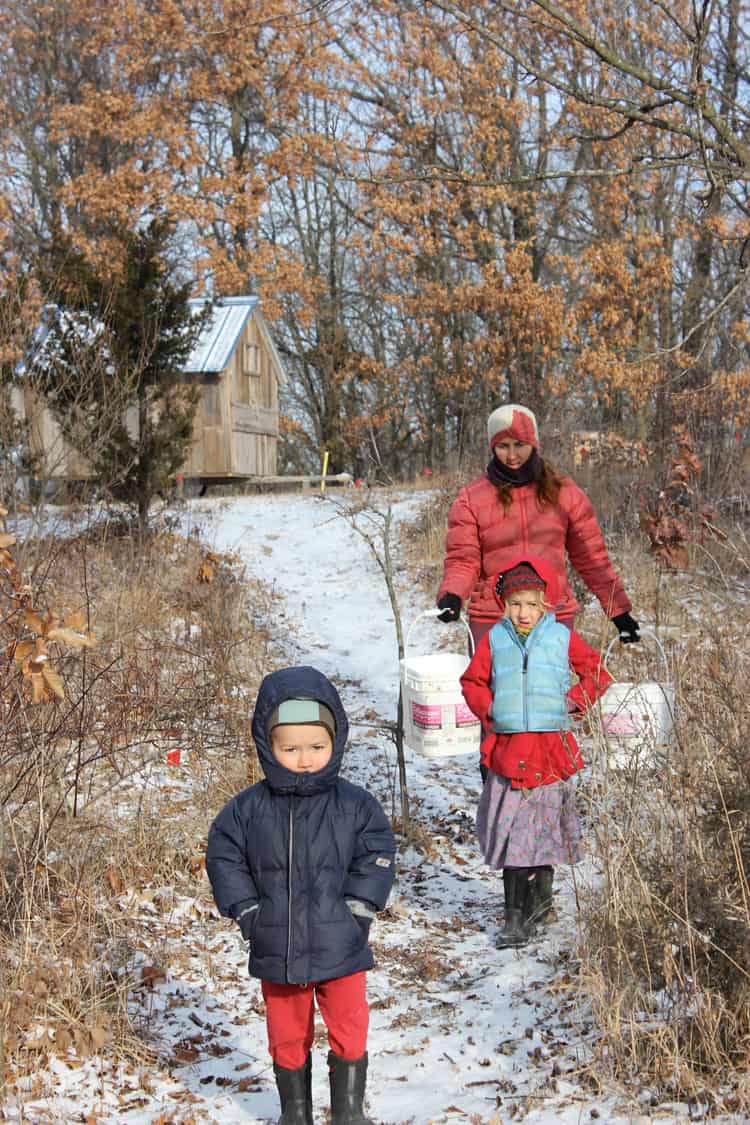
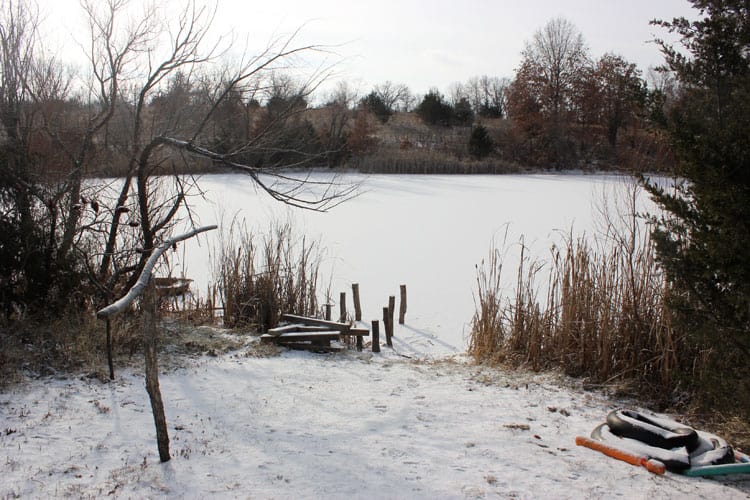
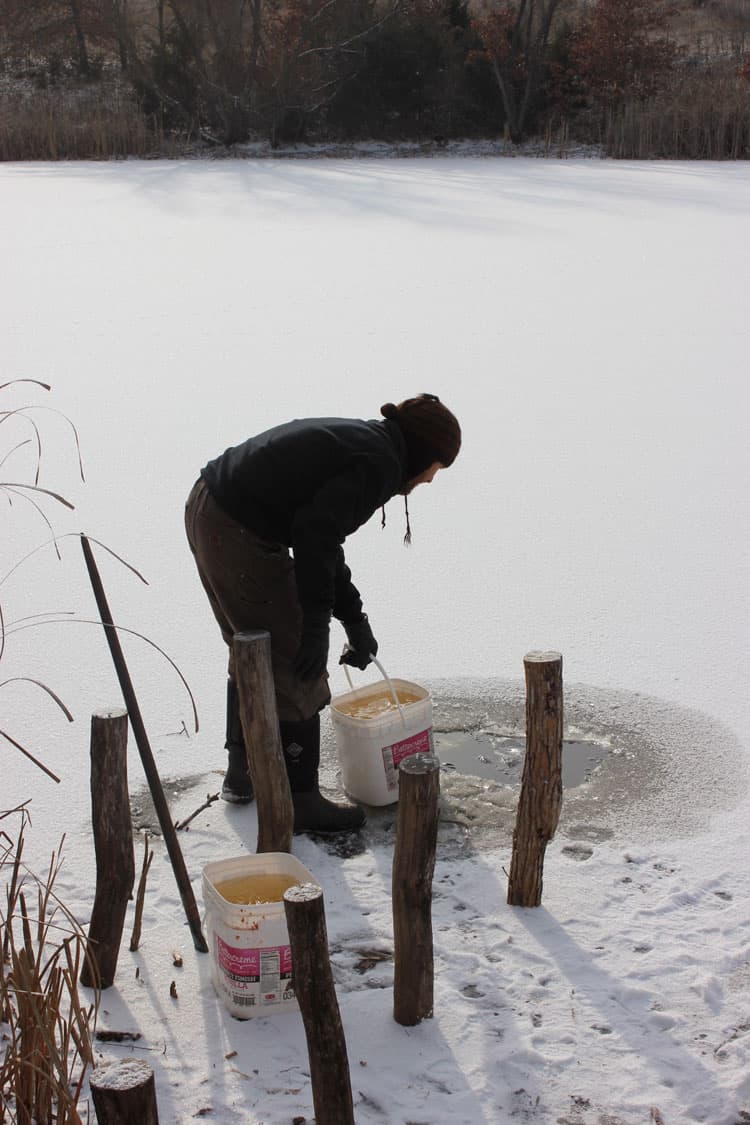

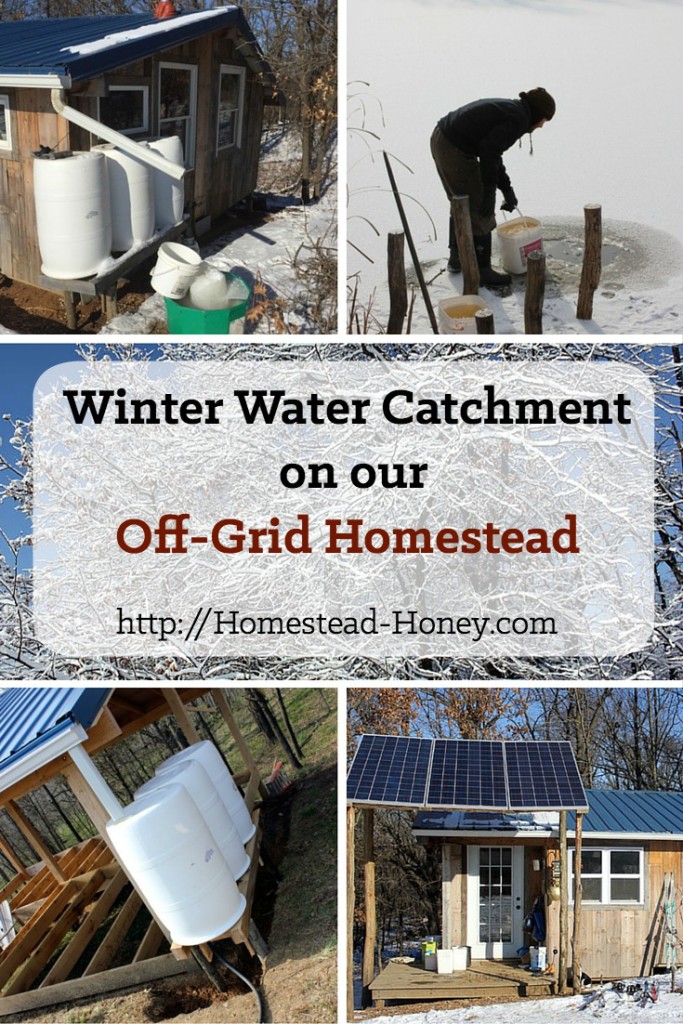
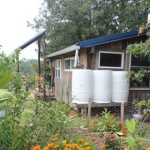
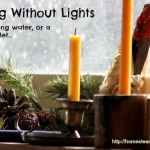
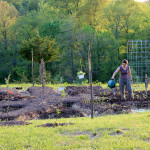
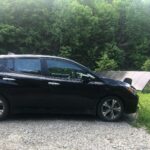
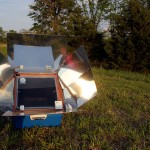
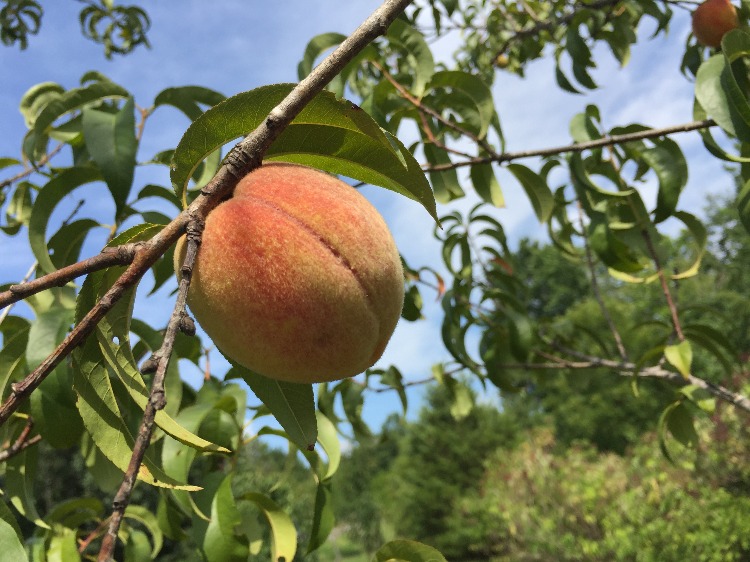


I’ll be living off-grid in upper Michigan, and oh yes, there are LOTS of below-freezing days and nights. I was wondering how I could have water without melting inordinate amount of snow (and using more fuel or energy than I should). I think I’ll be able to manage this easily, and of course the handpump is pure gold. Thanks again!
This has definitely been the most challenging aspect of our homestead life. But we do seem to get enough snowmelt off our roof to refill our buckets regularly. And we found last year that keeping a few 50 gallon barrels of water in our root cellar made life a lot easier!
Until the ’70s, most folks in our area had cisterns and manual water pumps. Although we can get down to -40*F/C, we could always pump water because the cisterns (one for drinking, one for washing) were protected directly under the house( and the pumps were indoors by the sink); ours occupied 50% of the basement area ( the furnace/water heater =25%, the cold storage 25%) and were filled 2-3 times yearly with water hauled in from pump houses a few miles away. We were mighty conservative of water, esp in winter, so Dad wouldn’t have to risk frostbite by hauling in the cold months.
It’s wonderful to read about ways that people collected and stored water. While our house does not have a basement, we are imagining that we’ll build a cistern underground, perhaps right under an addition. Thank you for sharing this information!
I imagine that feeling of standing under a super hot shower is indescribable. I wish more people had that gratitude since water is our most precious natural resource!!
Stay warm and dry! Spring will be here before we know it, right?? 🙂
Yes, indeed, I can almost hear the robins chirping! One thing that is nice about Missouri is that you can get these beautiful 60 degree days in February, before the next snow! We are plenty warm though, and for that i am grateful.
This reminds me a lot of my childhood – every morning, before school, we walked down to our lower pond and had to chip ice away to provide water for all the livestock. And in the summer we would haul buckets of water to water our growing trees and such
Yes, that is what we did thus summer – water the chickens and trees with the pond water. I am glad it is somewhat close!
What a fun memory to have !